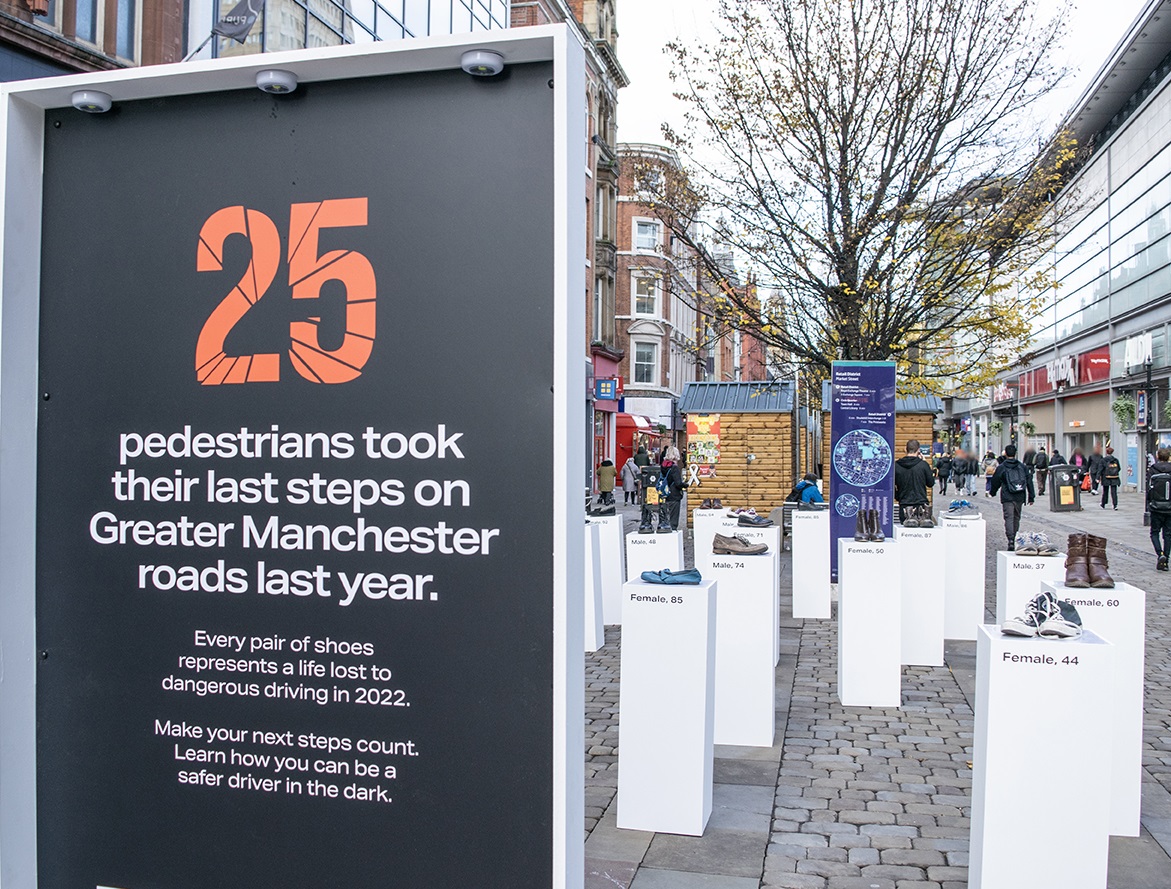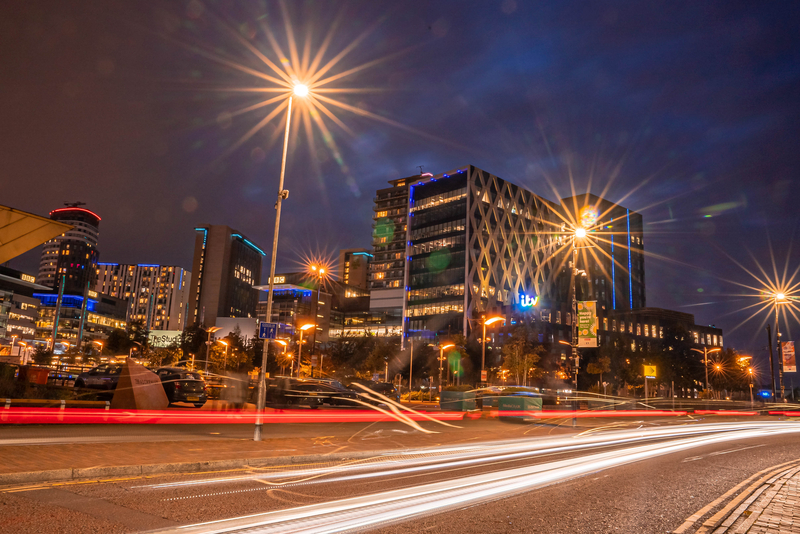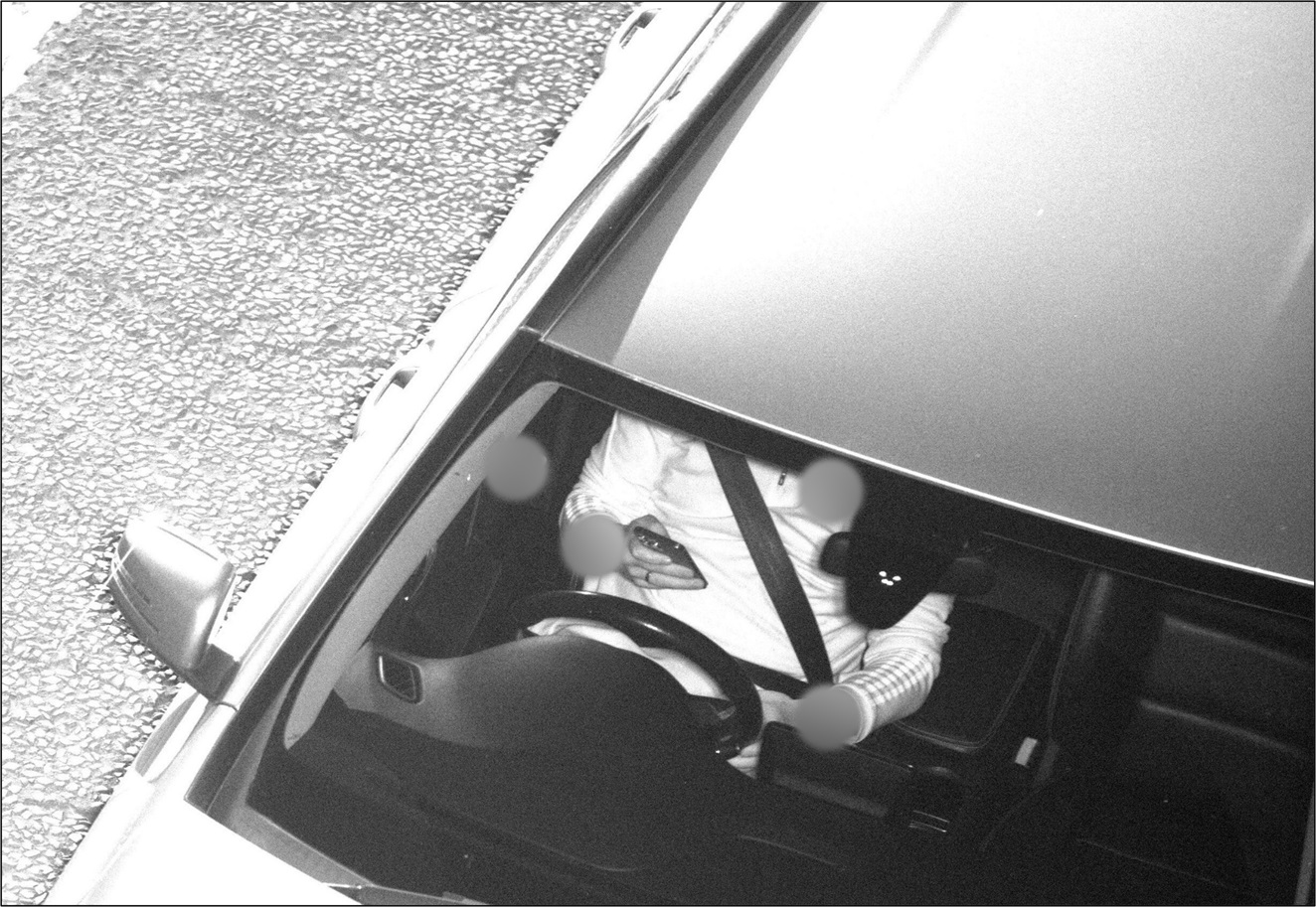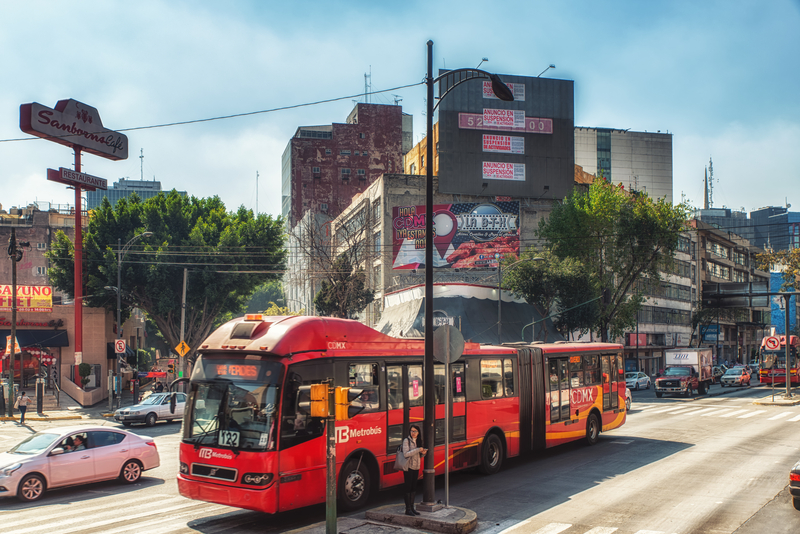
Drivers are being urged to take extra care and look for people crossing the road as darkness now falls in late afternoon in the northern hemisphere.
In Manchester, UK, an open-air exhibition in the city centre highlights the shattering effect of fatal road traffic collisions.
The Last Steps installation comprises 25 white plinths representing the number of pedestrians killed crossing or walking along Greater Manchester’s roads in 2022 - 39% of all road fatalities in the region.
On each of the plinths, marked with the ages and genders of those killed, rests a pair of shoes.
The initiative includes powerful testimony from the families of those who have been killed.
It is part of the Last Steps campaign by the Safer Roads Partnership, which includes Transport for Greater Manchester and local emergency and health services.
Children, young people and the elderly are most likely to be involved in serious collisions: between 2017 and 2021, 123 more pedestrians were killed and 1,004 seriously injured across the region.
Under recent changes to the UK Highway Code, drivers at a junction should give way to pedestrians crossing or waiting to cross a road.
Drivers should give way to pedestrians waiting to cross a zebra crossing, and pedestrians and cyclists waiting to cross a parallel crossing.
What are the best tips for safe driving in the dark?
• Look carefully: Keep an extra eye out for pedestrians, as they’re much harder to spot in the dark.
• Be patient: Give people the time they need to cross the road at junctions and crossings.
• Watch your speed: Take your time, look out for unexpected movements, and be ready to stop safely - most pedestrian collisions take place in a 30mph zone.
• Stay alert: Take extra care around schools and residential areas. Don’t drive if you’re too tired.
• Check your vehicle: Keep your windows and mirrors clean and clear of condensation and frost. Make sure all your lights are working and you’re using them right.









